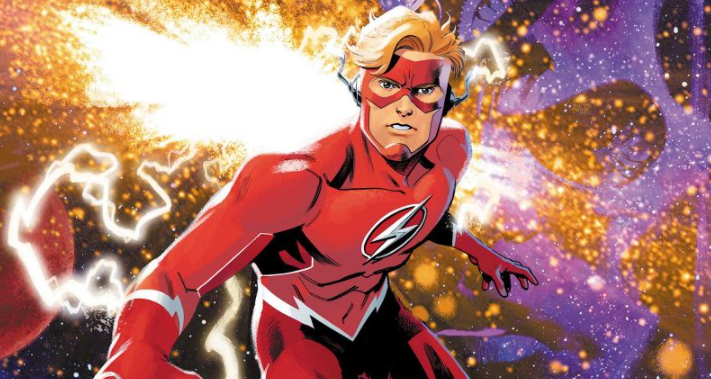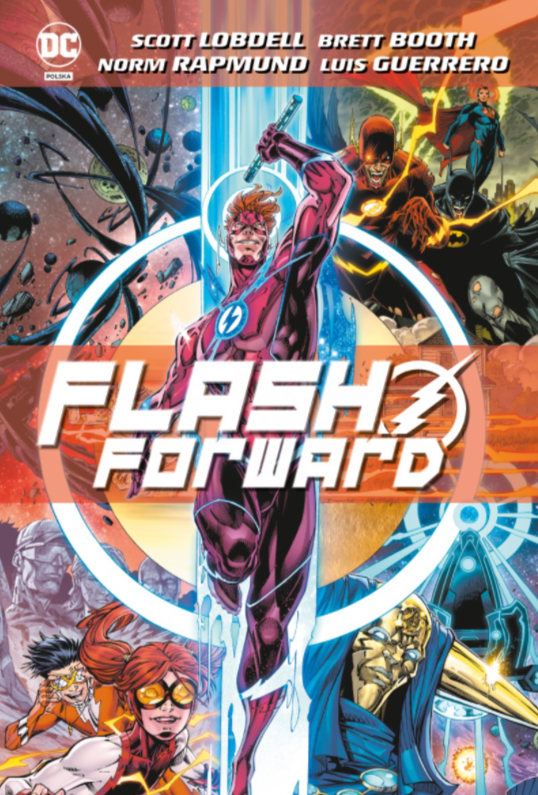
Flash Forward is a comic book that was supposed to disenchant the character of Wally West for fans - the uneven display of the hero in recent years has become problematic. However, did screenwriter Scott Lobdell manage to fulfill this task?
Regular DC readers may at some point get the impression that Wally West is a man, nomen omen, of two speeds. First, he returned in glory in the story of the DC Universe - Rebirth, where he was shown as a figure who contributed greatly to the transformation of the entire publishing world. Later, however, in the exceptionally divisive Heroes' Crisis, the younger of the Scarlet Sprinter was overwhelmed by such traumatic experiences that he even became a murderer. Flash Forward, a comic book that has just been released on the Polish market, tries to shed new light on West himself, turning on the one hand into a bridge between the next big events within DC, and on the other hand, simply trying to correct what in Wally's mythology was broken. Unfortunately, I'm not sure screenwriter Scott Lobdell has fully lived up to the latter task. Yes, readers will certainly feel that this version of Flash still has enormous potential, and its modern history has asked for an update, but in the first place the reviewed volume feels like DC settling its own past mistakes. Unfortunately, an efficiently conducted narrative and the floating vision of a cosmic catastrophe may not be enough to forgive past sins.
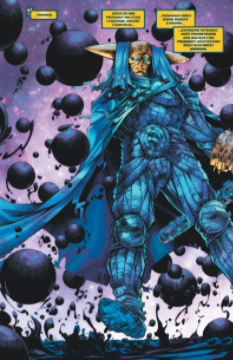
After the Heroes Crisis, West ended up in Blackgate Prison - swarming with characters he has struggled with over the years. As if that were not enough, the hopeless situation of the protagonist intensifies his mental condition. So Wally is not at his best mentally, and his guilt pushes him to the brink of depression. As for fear, it is to some cosmic (almost) god, in this case to the aura-shrouded mystery of Tempus Fuginauta. It is this creature guarding the integrity of the universe that announces to West that he is the last hope of the multiverse being torn apart by two mutually opposing forces. There is more and more of a formidable dark energy here that can wipe out all reality once and for all. The Flash will, of course, take on the task, and it's hard to assume that he is aware of how deep the waters he is going to swim. In the background of his battle to redeem wines, there is also the possibility of regaining his family - is Wally able to cope with such a multi-level task?
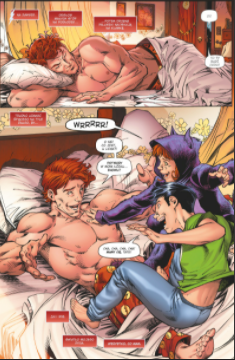
From the plot description itself, it is clear that Flash Forward is laying the foundations for the Death Metal event, even if we realize as we read that this goal is of secondary importance. More disturbing is the aftermath of this fact, which boils down to the statement that Lobdell is constantly stranded between typical superhero entertainment and an attempt to penetrate the mind of the main character. There is a lot of chaos and skirmishes here, which are sometimes a bit intrusive with references to Wally's psyche and his past traumas. The scriptwriter does not even hide that he is trying to kill two birds with one stone, which in my opinion leads to a situation in which neither one nor the other plot area is properly pampered. What's worse, we are able to arrange the finale of this story relatively quickly, which makes Flash Forward lose the element of surprise. It is definitely better where the next pages of the comic can be read at the meta-level; West's struggle to settle accounts with himself is an intriguing addition to the character's mythology, although in order to assimilate this perspective, readers should know a few previous stories with his participation, with Heroes' Crisis at the fore.
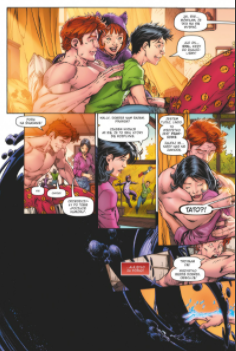
I have no major objections to the graphic layer for which Brett Booth was responsible - maybe with the exception of the silhouettes of the characters, which often look as if they came back from the forced weight loss course. The illustrator accurately reflects the main character's travels through the space-time grid, and the visual effects, further emphasized by the treatments of Norm Rapmund applying the ink, can attract with their shape and colors. All this enriches the aspect that is the most important in this story: the dynamics of events.
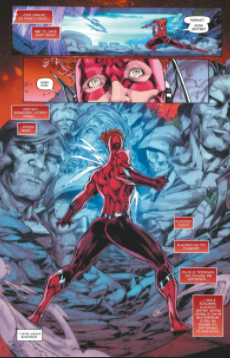
Flash Forward is hardly a revolution for the character of Wally West; rather, it is an evolution that followed the patchy exposure of this version of the Scarlet Sprinter in recent years. Yes, the hero was finally rescued for the DC world, but it happened mainly in the stories that had not yet been published in Poland. The comic published on the domestic market, unfortunately, is not a must-read for Flash fans - mainly because in this case it is difficult to talk about a story that is accessible and closed in terms of composition, which can be recommended even to recipients unfamiliar with the recent events in the DC universe. However, if you want to keep your finger on the pulse of this aspect and discover the wider context that led to Death Metal, it would be good to have Flash Forward on your shelf.
